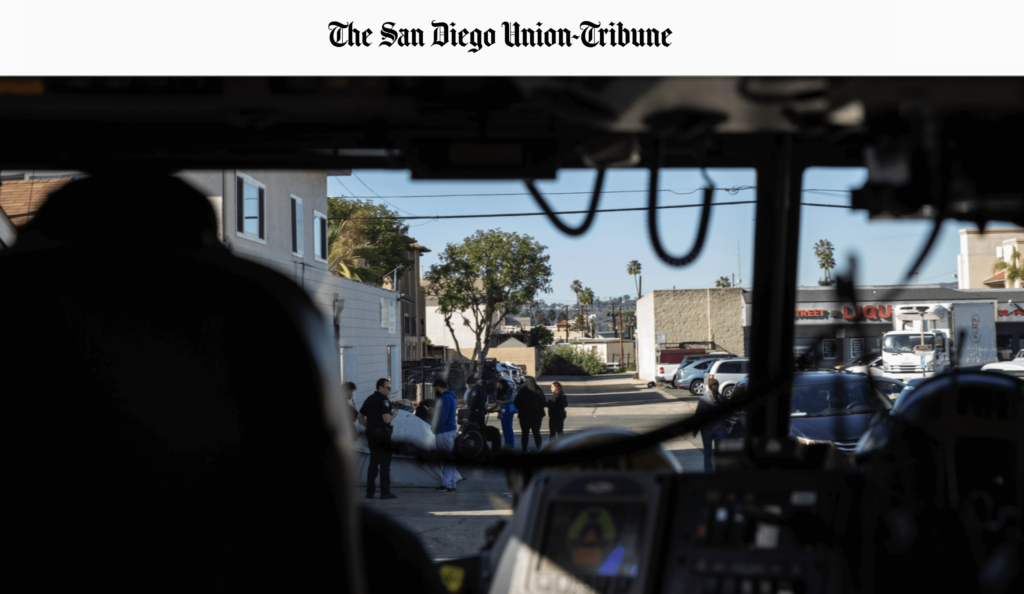This article was originally published in the San Diego Union Tribune
By Todd Gloria and Matt Mahan
California’s trio of public safety crises — homelessness, drug abuse and retail theft — represent a costly, unfolding epidemic of human suffering.
Highly addictive and dangerous drugs like fentanyl have exploded in communities across California. Fatal overdoses have become the No. 1 killer of Californians aged 15-44, more than car accidents, lung cancer or diabetes. They don’t discriminate by race, gender, or politics, though research shows disproportionate impacts on communities of color. Addiction isn’t just taking lives through overdose — it is destroying the lives of the living by driving people onto the streets, and into stealing and dealing.
From San Diego to San Jose and San Francisco, municipal leaders understand the costs and consequences of the crisis firsthand. Once thriving commercial corridors have been transformed into open-air drug markets. This isn’t just affecting large retailers. It’s hurting small businesses, many built by immigrant families, resulting in a “theft tax” that raises everyday costs for the average working family by hundreds of dollars every year.
Proposition 36 offers a compassionate way forward. Not through a return to mass incarceration, but rather by launching an era of mass treatment. The initiative builds on the historic investment in treatment facilities voters approved in passing Proposition 1 back in March, by holding repeat offenders accountable for completing treatment programs that are proven to save lives and reduce criminal recidivism. Specifically, Proposition 36 restores tools that judges had prior to the enactment of the well-meaning Proposition 47, which empowered them to compel nonviolent repeat offenders convicted of drug crimes to complete treatment programs, while gaining access to housing, job training and other critical services.
By itself, Proposition 36 will not be a panacea that eradicates addiction and homelessness from our streets. But it is a badly needed step forward that will make things better.
Participation in drug courts has crashed. Recent research shows that at least 35 percent of California’s homeless population — a population that has grown by more than 40 percent over the past decade even as it has fallen in other states — are regularly using controlled substances. From 2019 to 2023, drug overdoses among people experiencing homelessness in San Diego County increased by 233 percent, driven primarily by a 1,718 percent increase in fentanyl related deaths — including 419 unsheltered individuals in 2023 alone.
Our policy debates too often get political and partisan. This one shouldn’t be. The city and county leaders who deal with the downstream costs of this crisis every day understand that treatment — including court-mandated treatment — is the best investment we can make and would be far cheaper than dealing with the continuous effects of greater crime, homelessness and drug abuse.
California’s annual budget is nearly $300 billion. A recent state audit noted the chronic nature of this problem costs taxpayers as much as $50,000 per year for every un-housed individual. The dual epidemics of fentanyl addiction and retail theft carry a heavy public cost too. But past research has told us that treatment works, returning as much as $7 back to the public for every dollar we invest.
Proposition 36 will mean more Californians in treatment, not less. It will help us identify more of the people who need that treatment, by creating more tools to enforce accountability within the criminal justice system.
At the end of the day, this will translate to lives being saved, neighbors living indoors instead of the streets, and more of our community’s commercial corridors coming back to life.
It is time to reject the false choices we’ve been force fed on public safety. Local government is about solving real problems. That’s why so many of us are coming together to fight for Proposition 36. Because doing nothing isn’t an option, and the status quo isn’t working for California.
Gloria is the mayor of San Diego. Mahan is the mayor of San Jose, and the leader of Common Sense on Safety — Yes on Prop. 36.

